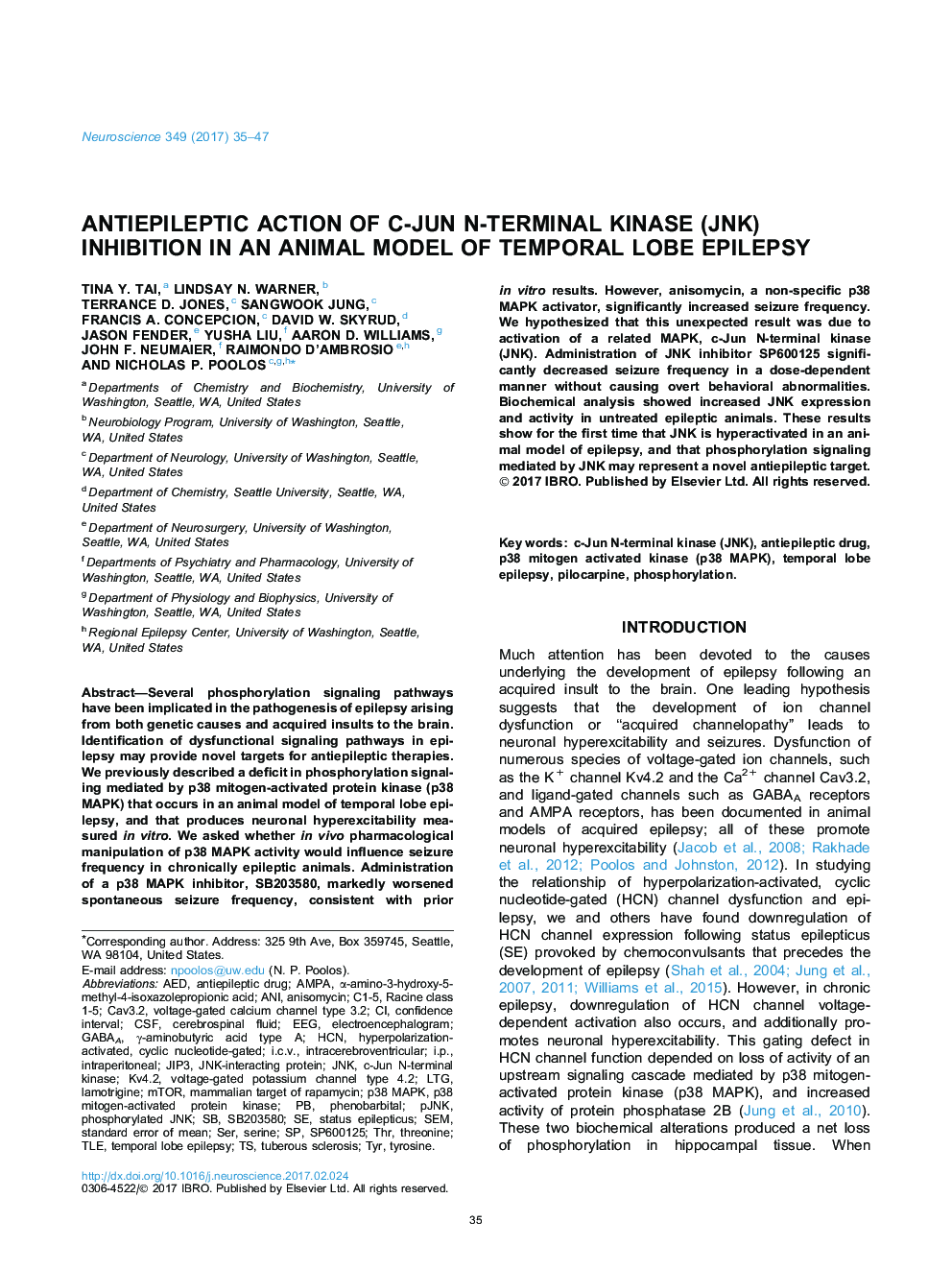| کد مقاله | کد نشریه | سال انتشار | مقاله انگلیسی | نسخه تمام متن |
|---|---|---|---|---|
| 5737718 | 1614727 | 2017 | 13 صفحه PDF | دانلود رایگان |

- Inhibition of c-Jun N-terminal kinase (JNK) produces a dose-dependent antiepileptic effect in an animal model of epilepsy.
- JNK is hyperactivated in hippocampal tissue from chronically epileptic animals.
- JNK inhibition did not produce behavioral abnormalities.
- Inhibition of p38 mitogen-activated protein kinase (p38 MAPK) yielded a proconvulsive effect.
Several phosphorylation signaling pathways have been implicated in the pathogenesis of epilepsy arising from both genetic causes and acquired insults to the brain. Identification of dysfunctional signaling pathways in epilepsy may provide novel targets for antiepileptic therapies. We previously described a deficit in phosphorylation signaling mediated by p38 mitogen-activated protein kinase (p38 MAPK) that occurs in an animal model of temporal lobe epilepsy, and that produces neuronal hyperexcitability measured in vitro. We asked whether in vivo pharmacological manipulation of p38 MAPK activity would influence seizure frequency in chronically epileptic animals. Administration of a p38 MAPK inhibitor, SB203580, markedly worsened spontaneous seizure frequency, consistent with prior in vitro results. However, anisomycin, a non-specific p38 MAPK activator, significantly increased seizure frequency. We hypothesized that this unexpected result was due to activation of a related MAPK, c-Jun N-terminal kinase (JNK). Administration of JNK inhibitor SP600125 significantly decreased seizure frequency in a dose-dependent manner without causing overt behavioral abnormalities. Biochemical analysis showed increased JNK expression and activity in untreated epileptic animals. These results show for the first time that JNK is hyperactivated in an animal model of epilepsy, and that phosphorylation signaling mediated by JNK may represent a novel antiepileptic target.
Journal: Neuroscience - Volume 349, 4 May 2017, Pages 35-47